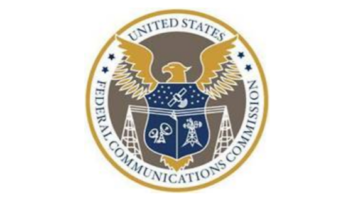The Federal Communications Commission has stepped in and stripped away operation authority from the owner of four AM radio stations in St. Louis, thereby deleting the stations from existence after a years-long series of enquiries into alleged violations of commission rules.
In a ruling reported by the FCC on March 20, the commission said Administrative Law Judge Jane Hinckley Halprin permanently dismissed the applications to renew and the consent to assign licenses of four AM radio stations in the St. Louis area — KFTK(AM), WQQW(AM), KZQZ(AM) and KQQZ(AM). The application to renew and assign had been requested by Entertainment Media Trust (EMT).
But according to the commission, EMT was allegedly actually controlled by Robert S. “Bob” Romanik, a shock jock convicted of obstruction of justice and bank fraud. According to FCC rules, persons convicted of felonies involving dishonesty are generally disqualified from holding attributable interests in broadcast licenses.
[Read: St. Louis Broadcaster Allegedly Controlled by a Felon]
According to the Media Bureau, Romanik was not actually listed as a party in any of EMT’s applications, although he was said to have established EMT and provided the funds to buy the stations.
Now, according to the FCC, all authority to operate the four stations has been stripped and the call signs will be deleted. But the commission is also looking ahead and said it will take steps to protect the four stations.
In anticipation of a future decision potentially allowing for the acceptance of mutually exclusive applications for those four frequencies, the Media Bureau said it will require “continued protection of the four formerly-licensed facilities” and announced a related filing freeze on accepting any AM minor change applications that would conflict with any of the four stations’ expired licenses.
That freeze will remain in effect until the close of the window or an announcement otherwise modifying or lifting the freeze. “The bureau will dismiss any AM minor change application filed during this freeze that does not protect the most recently licensed facilities of the four stations,” the Media Bureau said in a statement.
One industry group calling on the FCC to take action was the Multicultural Media, Telecom and Internet Council (MMTC), which asked the commission to preserve those four radio stations outright by giving MMTC’s broadcast subsidiary operating responsibility for the stations. The MMTC, however, pulled back that offer a week after learning the FCC Enforcement Bureau had some legal and policy concerns surrounding the proposal.
Instead, MMTC proposed that the commission invite other qualified entities to apply for interim licensure and that a permanent licensee should be selected by public auction.
MMTC also proposed that the commission contemplate creation of a policy on interim operations like this one that could apply not just to revoked licenses, but also to the number of stations whose owners voluntarily turn in their stations’ licenses.









